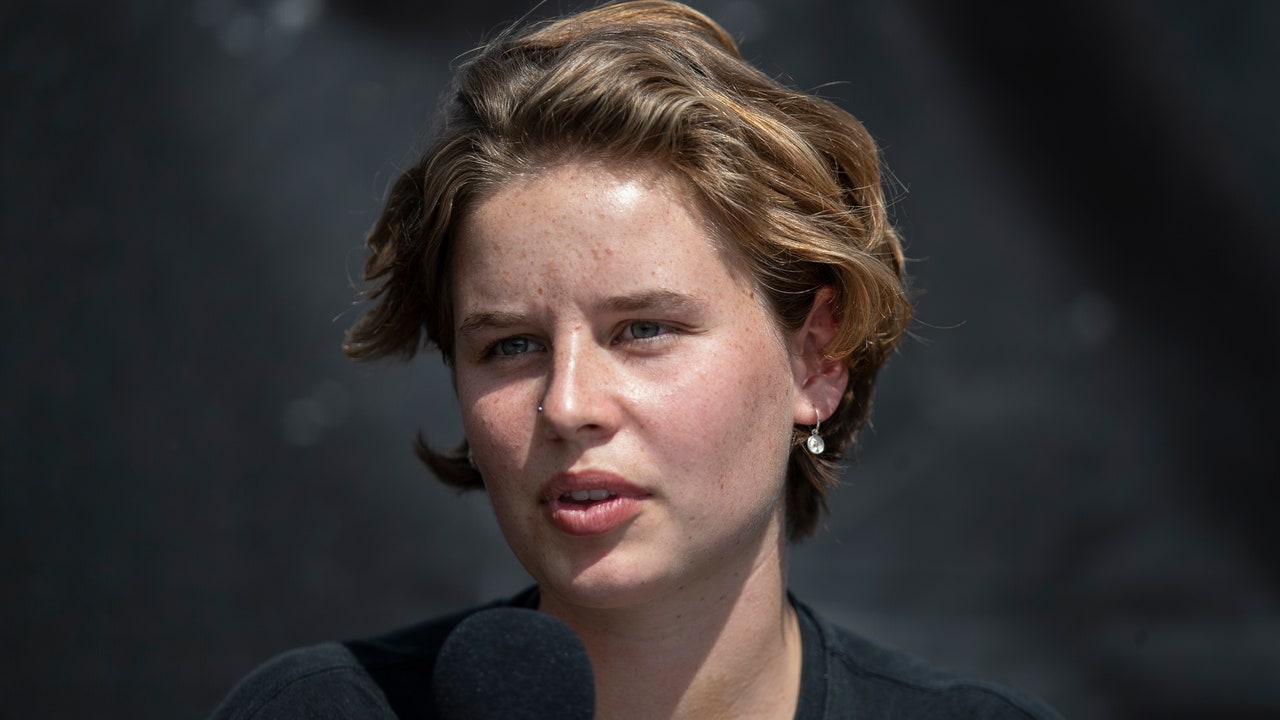In the opening scenes of I Am Greta, the new documentary on Greta Thunberg and the school strike movement, we see her as she was back in the summer of 2018. Sitting on a Stockholm street corner outside Stockholm’s Parliament House, Thunberg holds her now world-famous “skolstrejk för klimatet” sign as passers-by glance down at her with disinterest. It’s an image that was, over the following months, slowly beamed around the world—eventually inspiring millions upon millions of young people to join the “school strike for climate” movement, with the protests throughout 2019 taking place across 150 countries.
Yet as the documentary makes clear, Thunberg was far from alone in igniting the movement’s still-roaring flame. In December 2018, the day after Belgium neglected to sign a new declaration on addressing climate change at the COP24 summit in Katowice, Poland, then 17-year-old Belgian student Anuna de Wever was searching for organizing strategies when they came across Thunberg’s approach. De Wever began drumming up local interest online before staging their first protest in the same mold two weeks later on the streets of Brussels. That protest became one of the first international branches of the school strike movement that would go on to sweep the globe.
“First there were 3,000 people, then 15,000, then 35,000 and Brussels became this international thing with journalists from all over Europe coming to interview us and understand how it happened,” de Wever remembers, noting that this rapid growth and widespread amplification of the movement and its message was very much their plan of action from the beginning. “I was really inspired by what Greta did, so I decided to scale it up and get as many people as possible involved. For me, that was the most obvious solution—to build a lot of pressure very quickly.”
Like Thunberg, de Wever’s ability to articulate the sweeping crises imposed by climate change in a way that is both impassioned and informed speaks of a perceptiveness far beyond their years. (Now 19, de Wever identifies as gender nonbinary.) For de Wever, too, the cult of personality that has been formed around them comes with challenges similar to that of Thunberg, as vividly explored in I Am Greta. Within their native Belgium, de Wever is very much the movement’s figurehead. Internationally, meanwhile, the press regularly mentions them in the same breath as Thunberg, along with Adélaïde Charlier and Luisa Neubauer, considered their counterparts in France and Germany respectively.
Not all of the attention, of course, is positive. How does de Wever deal with the online abuse that is inevitably slung their way? “It can be hard,” de Wever says. “I’ve had a lot of conversations with Greta about how to deal with this. I’ve gotten a lot of death threats and a lot of people said they would come and rape me or beat me up.” One particularly challenging moment came last year when de Wever was invited to speak at Belgium’s annual Pukkelpop music festival. While giving a speech alongside fellow climate activist Nic Balthazar, de Wever was aggressively heckled by a far-right group who had specifically targeted their event; later, they were harassed and physically attacked in the festival’s campsite.
